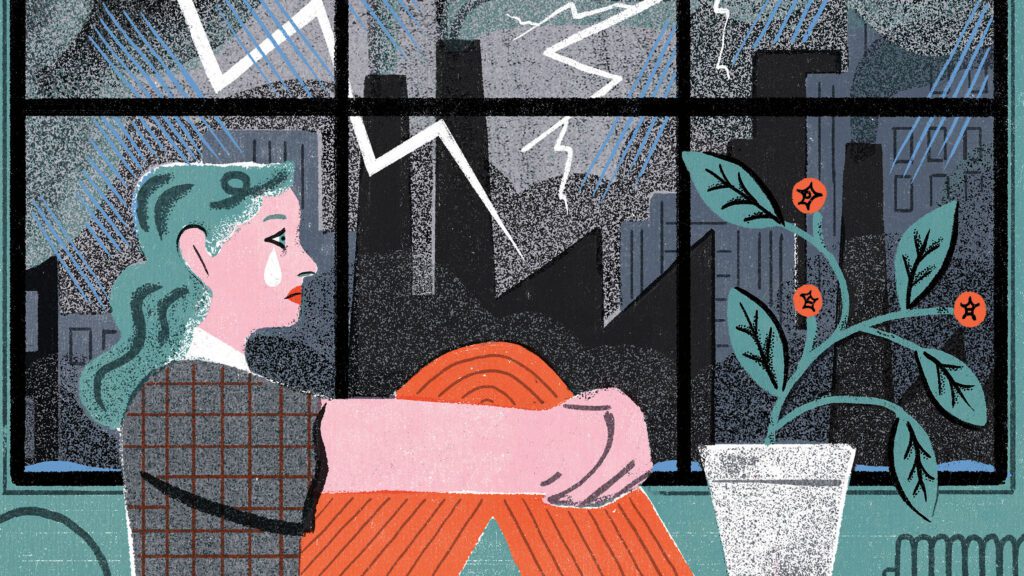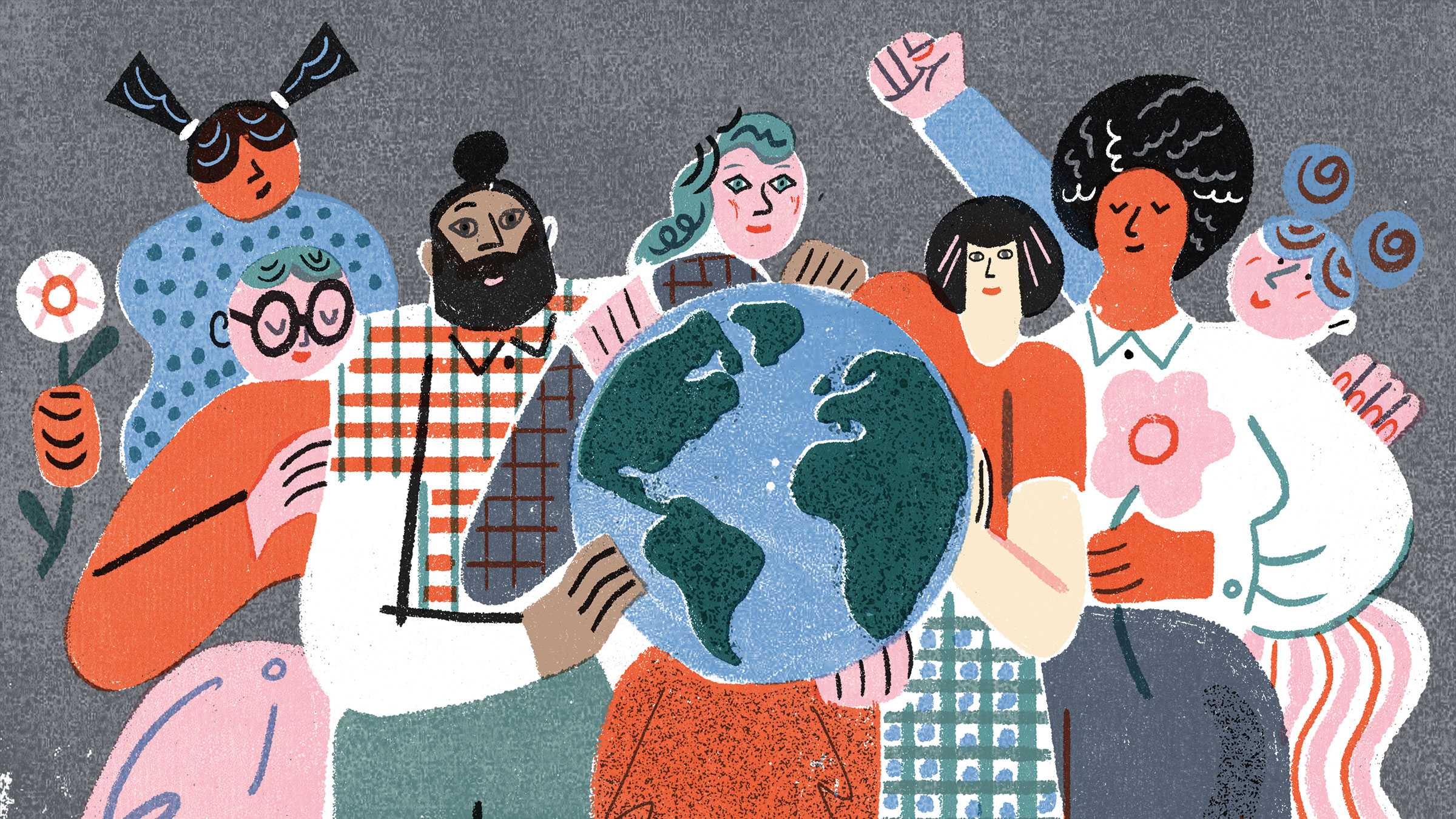As I write this morning, children in the next yard are playing. I hear them making the sounds kids make when happy. They are not worried about the climate. Yet they will be. It’s inevitable.
In a recent survey, young people in countries around the world said they were troubled by climate change. More than a third said their anxiety is at the level where it interferes with their daily activities. That’s high anxiety. Interfering with daily activities is a big deal. If your drinking interferes with your daily activities, we all know that it’s time to take action.
What can you do about climate anxiety? Start by understanding anxiety in general. Much of anxiety is based not on fact but worries taken to the extreme. Our worries repeat to the point where they become ruminative. Maybe you suspect you upset somebody, so you think about the situation again and again, playing it over in your mind in the middle of the night. Or maybe you feel that what your boss did to you was unjust, so you analyze it over and over, to the point where it interferes with your daily life.
“It comes down to us. We can approach our climate anxiety like a friend. It is telling us something real. It is telling us to act.”
This kind of anxiety may start with a fact or set of facts. What your boss did to you may indeed be unjust, or maybe you really did upset that person. But rumination can lead to a level of anxiety that becomes a hell realm. It’s unhelpful when you take experiences and add energy to them, making them more important than they are. Doing this, you use your imagination to go beyond the facts. The incident or series of incidents may be real, but you use your imagination to amp them up. So, while there is an element of fact behind the hurt, the hurt itself is something that you make.
There are ways of dealing with such anxieties, and the practice of self-awareness is fundamental here. I can watch a thought arise, watch it arise again, watch how it occupies my mind, constricts my chest, drains my energy, and occupies my day like an intruder walking into the house of my mind. Seeing this pattern is the first step to going beyond it. When practiced patiently, we can overcome such afflictive thoughts.

Now let’s turn to climate anxiety. It’s not based on anything imaginary. It’s based on fact. And it’s not just rumination spinning our mind into a hell realm. The reality is that we are looking into the future of the world and seeing the possibility of a hell realm. A hell realm in real time that we will have made for ourselves.
So, climate anxiety becomes our practice—a continuous practice for all of us. It becomes our practice whether we want it to be or not. This is a new kind of continuous practice. It’s unlike anything we have ever faced.
We might think it’s like war. In a way it is. But wars, no matter how destructive, end. Climate change, now that it has come to the point of crisis, will not end. The heat will go up, and we know what the changes will be.
We might think climate change is like cancer. In a way it is. Like getting a cancer diagnosis, it is a permanent change in status. My body was a friendly place for me to live, and now it is under threat. The earth was a friendly place for us all to live, and now it is under threat. With cancer, our individual life is threatened. With climate change, human civilization is threatened. With cancer, we need to take responsibility for our care, and if we’re lucky, we may survive well, at least for a time. With climate change, we also need to take responsibility.
Thinking we could take down life on our planet, I had deep climate anxiety for years. I focused an entire weeklong Zen sesshin on this anxiety. Then it dawned on me one day in zazen: We cannot end life on our planet. We can reduce or end our own species and many others—not life though. Life will go on. In the worst case, it will take millions of years after we have gone for new species to emerge into the richness and diversity we now enjoy. In time, though, such richness will emerge again, whether humans are here to enjoy it or not. So, climate change will not end life on Earth. That is a great comfort as you begin the practice of dealing with your climate anxiety.
If we take positive action, there will be disruption, but civilization will endure. If we are irresponsible and let climate change get worse, civilization—that fragile and beautiful construct that we have all of us created together—will go, and our descendants will enter a new dark age. But such dire outcomes are not inevitable. If we grow up fast as a culture and act, the future is ours to make.
There are more people with more imagination on the planet than ever before. There are still sharks in the sea. The Amazon is still there. China builds twice the renewable energy every year as the rest of the world combined. People around the world are rewilding. An array of new technologies can help.
It comes down to us. We can approach our climate anxiety like a friend. It is telling us something real. It is telling us to act. To do something positive. Positive action reduces climate anxiety.
There are myriad ways we can act, so let’s each study and act. Empowering ourselves with knowledge and empowering ourselves with positive action—these are key components of the continuous practice of climate anxiety. It is critical also to demand that our governments act much, much faster. We need to let them know that we demand they act. Companies must act, and we must make them act.
We all have boundless opportunity to act. To be responsible and to take responsibility. My own way is to use the power of the law. So, I founded ClientEarth, a group of three hundred lawyers and others, who hold governments and companies to account from offices around the world.
You might teach, run a company, have children, be a child. You might be a nurse, an accountant, an investor, an artist, a musician, a gardener. You might be a writer. Whatever you do, and whoever you are, you can empower yourself to know about climate change and to act on your knowledge. There are a thousand threads to weave together. There are millions of people whose efforts we can join with, adding our mind, energy, and skills.
Climate change is real, and it’s happening. It offers us a continuous practice that can help us turn the energy of anxiety into understanding, action, and a new culture—a culture in which we are kinder to each other and to the beings we share our planet with.

